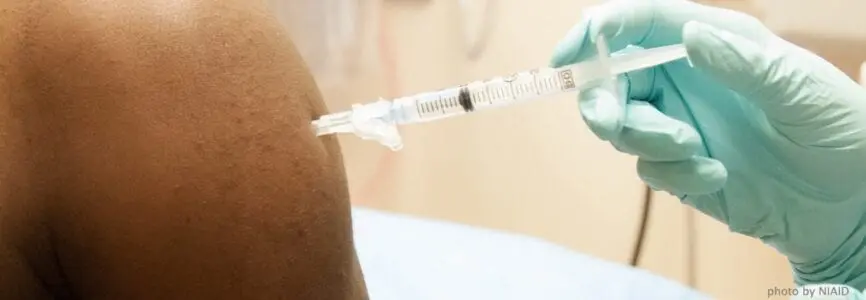Bioethics Forum Essay
Responding to Ebola: Selected Commentaries on Key Ethical Questions
The Ebola outbreak in West Africa is the largest and deadliest on record, and the crisis is evolving rapidly. More than 2,200 people have been infected in Sierra Leone, Liberia, Guinea, and Nigeria, and more than half have died. The response to the epidemic has raised ethical questions about the fair allocation of scarce resources, the appropriate use of unproven medicines, obligations to health care workers who volunteer for dangerous assignments, and international obligations to invest in adequate public health infrastructures.
Two excellent commentaries this week by Hastings Center Fellows explore these questions, analyze structural problems that are contributing to the present crisis, and offer recommendations for public health planning.
Nancy Kass, writing in Annals of Internal Medicine, addresses three questions: Was it ethical to airlift two infected American health care workers to the United States for treatment? Was it ethical to give them a “highly experimental” drug? And if it was ethical to give them this treatment, should Africans infected with Ebola receive it too?
Kass argues that the airlift was ethical. While mindful of the duty not to abandon patients, she points out that few health care workers would ever volunteer to care for Ebola patients in West Africa, and “traveling to help patients with an illness both highly contagious and usually fatal is what ethics calls “supererogatory”–above and beyond usual norms of good ethical conduct.” (In a recent interview Joanne Liu, president of Doctors Without Borders, said that recruiting health care workers for West Africa is more difficult than for war zones.)
Given the danger that these health care professionals were willing to face, Kass says it would have been “unconscionable” not to assure them that, “should they contract Ebola, they would be airlifted home to receive the best care available.” (Both have recovered and been released from Emory University Medical Center.)
Kass also thinks that a decision to give a highly experimental treatment to health care workers at imminent risk of dying “seems more reasonable” than a decision to give such a treatment to an entire community, assuming sufficient quantities of the drug were available (which is not the case ). Even under these conditions, a health care worker’s “potential to understand risks” – namely, the risk of harm from the treatment as well as the risk of dying from Ebola – “is probably high.”
However, Kass says that this compassionate-use scenario, in which an individual patient receives a drug that has not yet been determined to be either safe or effective, “does, and should, differ from the threshold for rolling out a treatment program to an entire community” when next to nothing is known about the drug’s potential for harm or benefit. Testing a highly experimental drug on the public under such desperate conditions may trigger accusations of exploitation, making it even more difficult for U.S. researchers and other professionals to collaborate effectively with local officials to contain the epidemic.
In an issue brief, Lawrence O. Gostin makes a different argument. Noting that the two airlifted American health care workers are white and the vast majority of those affected by the outbreak are black Africans, he writes, “While administering an unproven drug to African patients conjures up images of unconscionable human experimentation, the failure to meaningfully consult local communities and leaders is a moral failure.” He recommends that, in ongoing compassionate-use decisions involving individual health care workers and access to highly experimental treatments for Ebola, “priority ought to go to African health workers, who face frightening risks and die in far greater numbers than foreign workers” and that “allocation decisions be made fairly and transparently.”
To the last point, Gostin says that transparency was lacking in Africa: “African leaders apparently did not approve the use of an investigational drug administered in their territory, which arguably violated Liberian law. The decision was made behind closed doors without transparency and community engagement.”
Gostin and other commentators, including Paul Farmer of Partners in Health, also emphasize the crucial need to invest in local public health systems in developing nations. Gostin proposes the creation of a “health systems fund” administered by the World Health Organization that would be “supported by high-resource countries.” He describes how an immediate emergency “down payment” of $200 million could help the Ebola-affected region by meeting the survival needs of people under quarantine as well as by supporting the delivery of health care.
Over time, the fund could grow to “a multi-billion dollar funding channel for lower-income countries to strengthen their health systems, creating the capacity to respond to Ebola and myriad health threats,” he writes, saying that the expenditure would be “a wise and affordable investment.”
“It is in all states’ interests to contain health hazards that may eventually travel to their shores,” Gostin writes. “But beyond self-interest are the imperatives of health and social justice—a humanitarian response that would actually work, now and for the long-term.”
Susan Gilbert is the public affairs and communications manager of The Hastings Center. Nancy Berlinger is a Hastings Center research scholar who directed a project on pandemic planning.
Posted by Susan Gilbert at 08/22/2014 10:10:40 AM |













